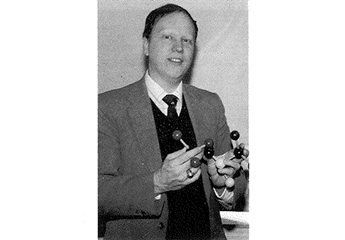My fascination with the natural world began when I was a young child. I memorized facts, bought books and proudly told every long suffering adult what I knew about the reason wolves howl at night, speed of the fastest animal alive and wingspan of a Golden Eagle (which may have been foreshadowing…or more like God’s ironic sense of humor). All these things I slowly stored up, and with it, a passion to know more about the creation our Father has given us. And although I was young…and busy catching green frogs, I knew that I eventually wanted to work as a nature conservationist.
At Cornerstone, I’ve taken steps to further my knowledge through classes such as zoology, botany and environmental science. As a result, I’ve gotten a first-hand look at the structure and details of God’s creation and our relationship to them. And, as I’ve developed a deeper appreciation for these things, I also began thinking about how my major would influence my career path. I already knew that I wanted to work in nature conservation because all of these things were important to me, but there was a deeper reason still.
A TALK WITH A NORTHERN MICHIGAN FARMER
One thing I experienced through Cornerstone’s environmental biology program is the Au Sable Institute, a campus that brings ecology and field biology to life. Located in Michigan’s northern backwoods, Au Sable gave me the opportunity to work as a farm hand in the middle of cherry country for a few days.
One morning, I questioned a farmer about why he chose the vocational path that he did. What was so alluring to him about working the land? He told me that this job gave him joy and a sense of purpose that he could only credit to God.
I began telling him that was the reason I was pursuing my own degree; I felt it to be God instilled, and it gave me a sense of fulfillment to be studying what I loved.
At that moment, the farmer summarized, in a single sentence, what it is that I love so much about our Lord’s creation: “We love nature and the great outdoors because in it, we see the fingerprints of God.”
The fingerprints of God. The phrase stuck in my mind because it is so accurate, and so well put. Here was the source of my enthusiasm! The things that we experience on a day-to-day basis—the stars, the forests, the fields, the animals and the plants—all of these things were crafted by the very same, specific Designer who knows us all, who leaves traces of His glory in His works and knew that by His works that we would gaze in wonder, astounded and amazed, with no response but to marvel at His holy name. These fingerprints, intimate and purposeful, can and should only leave us speechless. They offer a connection that should be deemed invaluable.
STEWARDSHIP MATTERS
Creation care is important because it protects that connection between us and our Creator. Creation reminds us of Who we serve and belong to. Creation care is important because it is God who both designed and made it to glorify Himself, for our enjoyment and for our stewardship. It is in this stewardship role that we find ourselves the most satisfied, and by no accident, in touch with our Creator.
Creation is God’s manifestation of His power in our daily lives, and its organization and beauty tell us much about Him and His character as we care for it. Man can make beautiful things, but compared to God’s work they are not worth mentioning. I find myself preferring to talk to God under the shade of a hundred towering red pines than in any man-made cathedral. This is because we talk to the God who fashioned the pine—the same God who fashioned us.
Proper stewardship demands us to responsibly and passionately care for these things because through the protection and care of these fingerprints, we learn much about our Creator. Conservation, as the term implies, is the science of conserving our resources, for their future existence and well being as well as our own.
I hope to someday work for an agency that values these things. I firmly believe that we need more Christians in this field. Who else will truly understand the inherent importance of creation care? Who else will smile knowingly to the amazed child that catches a green frog, asking those wiser than he the question, “Who could have ever made such a beautiful thing?” It is fingerprints such as these that point us back to our Maker, and at the same time, our Savior.
“God writes the Gospel not in the Bible alone, but also on trees, and in the flowers and clouds and stars.” —Martin Luther







